Losing a limb is hard. But getting help shouldn’t be.
If you live in Bengaluru and are looking for a prosthetic hand or leg, you’re in the right place. This guide will help you find clinics near you, understand prices, explore EMI options, and even book a same-day trial.
We’ll keep it simple. No big words. Just clear answers and real advice to help you take the next step with confidence.
Let’s begin.
Bengaluru Prosthetics Near Me: Prices, EMIs, and Same-Day Trials
Prosthetic Clinics in Bengaluru Worth Knowing About
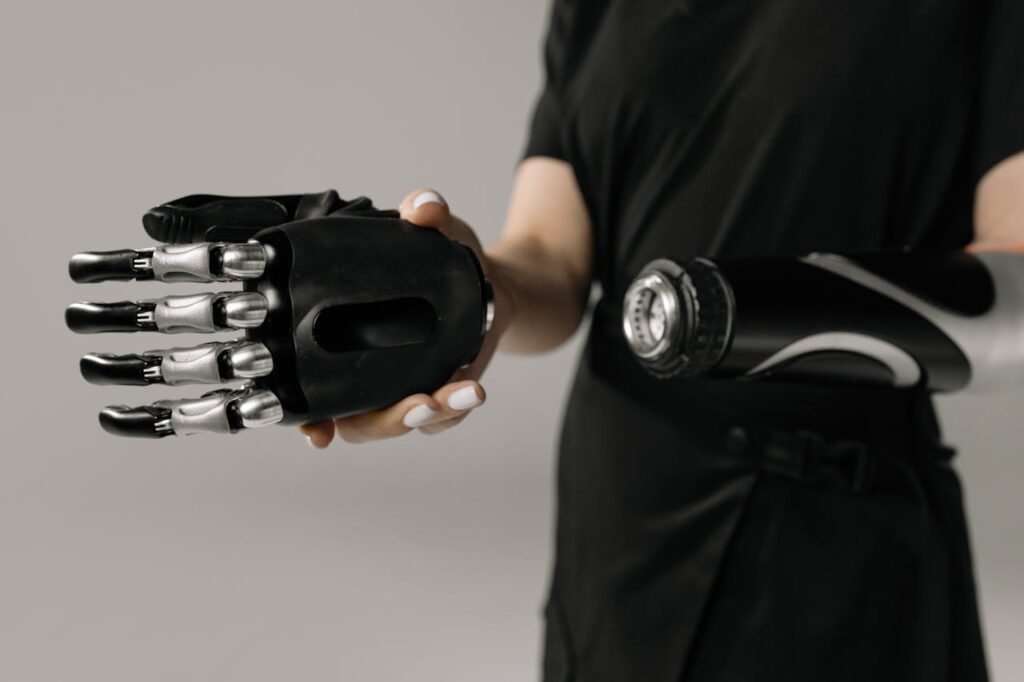
Finding a good clinic nearby makes all the difference. Whether you’re in Koramangala, Jayanagar, or Whitefield, Bengaluru has several trusted places. Each offers something special—latest tech, caring staff, or quick service.
Let’s explore some notable clinics and their strengths.
Trusted Clinics and Their Strengths
KSHEMAA Prosthetics & Orthotics
KSHEMAA opened its doors in June 2023. It aims to bring top-quality, internationally recognized devices to Bengaluru. They take pride in crafting custom prosthetic and orthotic solutions and supporting users every step of the way—even helping with insurance or financial aid.
They also offer follow‑ups, workshops to help users learn how to use and care for their devices, and even counseling services for emotional support.
KARE Prosthetics & Orthotics
KARE in BTM Layout blends advanced technology with warm, personal care. Their team includes highly qualified clinicians and offers gestures like gait training and maintenance services. They partner with global names like Össur and Orthomerica to bring cutting-edge solutions to users in Bengaluru.
You can expect a full support system—from fitting to rehab and checks to upgrades.
Ottobock Bangalore Clinic
The Ottobock clinic in Koramangala is known for its world-class solutions, from the C‑Leg 4 to advanced socket technology. Along with prosthetics, they also cover wheelchairs, orthotics, and full mobility support.
They bring global standards to Bengaluru and help users stay active and independent.
SPARSH Hospital Prosthetic Services
SPARSH Hospital offers prosthetics through their Physical Medicine and Rehabilitation department. They combine custom fittings, orthoses, prostheses, and ambulation aids—all under one roof.
This makes them a helpful destination for holistic care alongside clinical support.
St. John’s Medical College Hospital
St. John’s Hospital supports several types of prostheses—like above‑elbow, lower‑limb, cosmetic arms, and more—within their PMR department.
This is a good option if you want clinical care embedded in a hospital system.
Ishaan Ortho & Spine
Ishaan Ortho & Spine delivers prosthetic and orthotic care through its OPD services. They offer upper and lower limb prosthetics and support wrists, knees, and spinal braces as well.
They focus on helping you regain movement, confidence, and quality of life—step by step.
Pricing Insights in Bengaluru
What Do Prosthetics Usually Cost?
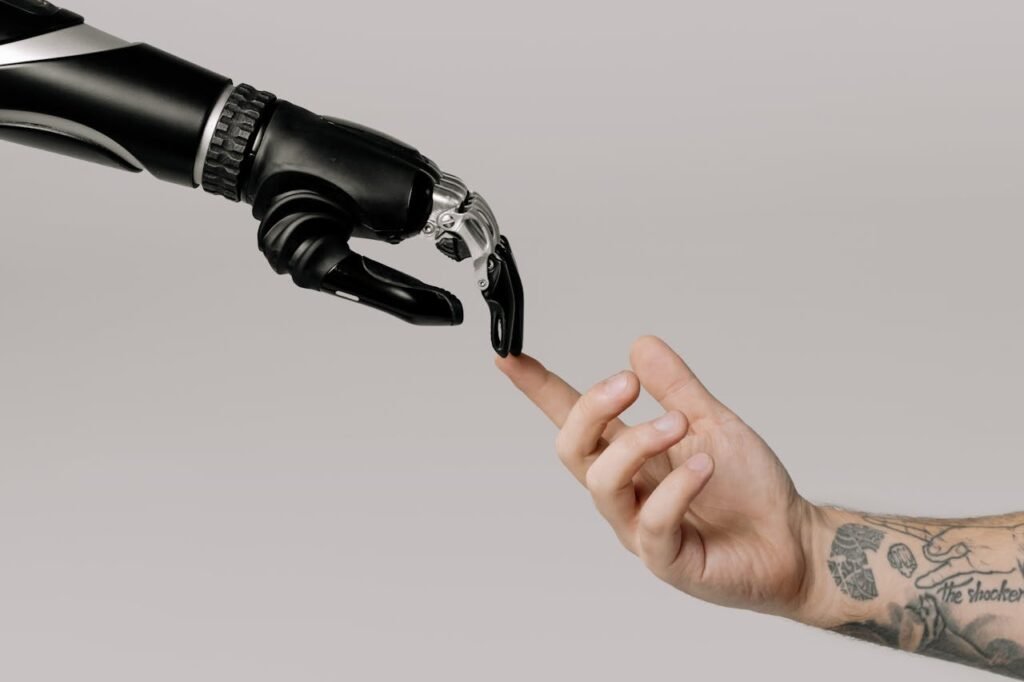
Prices vary widely depending on the type and tech involved. On Bookimed, the cost for prosthetic and orthotic services in Bengaluru averages around $2,750, which is roughly ₹2.3 lakh. The range goes from about $200 (around ₹16,000) up to $9,150 (over ₹7 lakh).
So, while some simple options are budget‑friendly, high‑end bionic limbs do cost more. It pays to ask and compare.
Hospital-Based Pricing
A platform like Vaidam shows that prosthetic legs via hospital systems often come bundled with fitting, surgery, or rehab support. Cost estimates depend heavily on the complexity and materials used—things like suction sockets and liners can affect pricing.
It’s always good to ask for a detailed breakdown of what’s included before deciding.
Using Same-Day Trials, EMIs, and Easy Plans
Do Clinics Offer Same-Day Trials?
Mumbai and Delhi have clinics that offer demo fittings—especially for ready-made options. For Bengaluru, some clinics may offer similar trials, but it’s best to call and ask. Ottobock, KSHEMAA, or KARE might let you try out basic models on the same day—especially for upper‑limb devices or standard sockets.
Payment Options and EMIs
High-end prosthetics can be expensive. Some clinics, especially private ones like KSHEMAA or KARE, may offer EMI options—breaking payments into easy monthly parts. Others may help with NGO funding or insurance paperwork. It’s always worth asking directly.
If cost is a worry, mention EMIs or ask if they help arrange financial support—many do.
What to Ask Before Visiting a Clinic
Booking and Trial Details
Check if they have same-day demos or demo limits. Ask how long fittings take—weeks for custom devices, days for standard ones. Ask about follow-up visits and how often you can return for adjustments.
On Costs & Payment
Clarify all costs—consultation, fabrication, fitting, rehab sessions, maintenance. Ask if EMI, subsidy, or insurance support exists. Request a quote in writing so you can compare easily.
Rehab and Long-Term Support
Find out if they offer training to learn how to use your limb. Ask about follow-up care—how often, for how long, and what it costs. If emotional support matters to you, check whether counseling or peer groups are available.
Summary So Far
Bengaluru offers a variety of prosthetic clinics, each strong in different areas. KSHEMAA brings compassion plus local quality. KARE blends tech with care. Ottobock offers global solutions. Hospitals like SPARSH and St. John’s offer clinical support. Costs vary—from affordable to premium—and you can explore EMIs or same-day trials by reaching out directly.
You’re making a smart choice just by reading this. Prosthetic care isn’t one-size-fits-all. It’s about finding what complements your life.
What to Expect During Your Prosthetic Journey
Your First Appointment
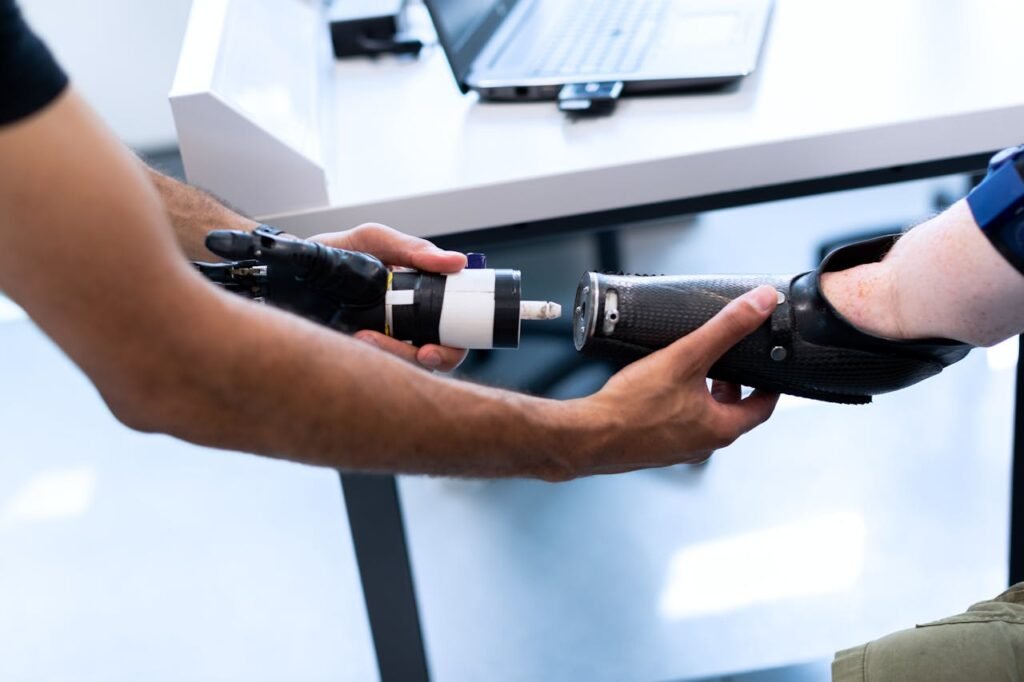
Walking into a prosthetic clinic for the first time can feel emotional. You might be anxious, hopeful, or even unsure of what to ask. That’s completely normal. The staff at most Bengaluru clinics understand this and do their best to make you feel safe and supported.
During your first visit, the prosthetist will sit down with you and simply talk. They’ll ask about your amputation, your health history, and your lifestyle. They may ask what kind of activities you want to do—walking, writing, driving, lifting, or maybe even running.
This is your chance to share your story. The more honest you are about your needs and expectations, the better the prosthetist can guide you. Whether you’re looking for a simple mechanical limb or a high-tech bionic one, they’ll walk you through your options gently and clearly.
Some clinics may also ask for any X-rays, surgery notes, or prescriptions you have. If you don’t have them, don’t worry—just let them know. They can often help guide you on what to bring next time.
Evaluation and Measurements
After the conversation, your prosthetist will usually examine your residual limb. They’ll look at the shape, skin condition, muscle tone, and any sensitive spots. This helps them understand what kind of socket (the part that attaches to your limb) will be most comfortable.
You’ll then go through the measuring process. This could be done manually using tape and calipers, or digitally with a 3D scanner. Some high-end clinics like Ottobock or KSHEMAA use advanced scanners to create a precise digital model of your limb.
If they’re creating a custom limb, these measurements are key. A good fit means better comfort, more stability, and less risk of skin problems.
You might also be asked to walk, stretch, or move around if possible. This helps them assess your balance, posture, and range of motion.
Choosing the Right Prosthetic
Once the measurements are complete, the prosthetist will guide you through your prosthetic options. These usually fall into three broad categories:
Cosmetic limbs – Designed to look realistic, but not functional.
Mechanical limbs – Functional but controlled through body movement.
Bionic/myoelectric limbs – Controlled by your muscle signals and offer features like grip strength, finger control, or even touch feedback.
In Bengaluru, you’ll find all three categories depending on the clinic. Clinics like KARE, Ottobock, and KSHEMAA all offer bionic solutions. Smaller centers or hospital-based clinics may focus more on mechanical or cosmetic limbs, which are more affordable and faster to deliver.
This is also the time when cost comes into the picture. Don’t feel shy about asking how much each option costs, what’s included, and what kind of payment support is available.
Some clinics will offer you demo sessions. You can try a sample hand, leg, or joint to feel the difference. This helps you make a better, more confident decision.
The Fitting Process
If you choose a ready-made limb, your fitting might happen the same day or in a couple of days. But for custom limbs, the process usually takes 1–4 weeks.
When the prosthetic is ready, you’ll return to the clinic for a trial fitting. The prosthetist will place the socket onto your limb and make adjustments based on how it feels. They’ll ask you to walk, sit, pick up objects, or perform small tasks depending on the type of limb.
This step is all about fine-tuning. If anything feels tight, loose, or uncomfortable, speak up. The team will keep adjusting until the fit feels just right.
You might need to come back a few times during the first month. Your body needs time to adjust. Even a perfect prosthetic will feel new and strange at first.
It’s like wearing a new pair of shoes—except it’s part of your body. With time, it begins to feel natural.
Learning How to Use It
Getting your prosthetic is only half the story. Learning how to use it in your daily life is just as important.
Most clinics in Bengaluru offer training sessions. You’ll work with a physiotherapist or occupational therapist who will guide you through the basics—how to wear it, remove it, clean it, and maintain it.
You’ll also practice how to walk, grab, balance, or lift—whatever your prosthetic is meant to help with. These sessions are tailored to your goals. If you’re a student, they’ll focus on writing or typing. If you’re a working adult, they may include standing, walking on uneven ground, or lifting light items.
If your prosthetic is a bionic device like Grippy™, you’ll be trained to use muscle signals to control movement. At first, this might feel strange, but most users pick it up within a few sessions. You’ll learn how to open and close your hand, adjust grip pressure, and use it safely around the home or outside.
Patience is key here. Be kind to yourself. It’s okay to feel tired, frustrated, or clumsy at the start. Every small step forward is progress.
Follow-Up Care
Your journey doesn’t end after fitting and training. Follow-up visits are important. These appointments help you stay comfortable, safe, and confident in your new limb.
You might visit once every few weeks at first, then move to once every few months. During these visits, the clinic will check your socket fit, inspect the limb for wear and tear, and see how you’re adapting.
If you notice pain, skin irritation, or trouble using the device, tell your prosthetist right away. Small issues can be fixed easily if caught early.
Some clinics also offer emotional support or connect you with other prosthetic users. These conversations can lift your spirits and give you hope. They show you that you’re not alone—and that others have walked this path too.
Real Stories from Bengaluru Prosthetic Users
Kavya’s Comeback
Kavya, a 24-year-old engineering student from JP Nagar, lost her left arm in a freak accident during a college trip. Her world turned upside down. Typing became hard. Cooking was a struggle. Her confidence dropped.
She visited KSHEMAA after finding their page online. The team welcomed her with kindness. They took the time to explain how a bionic hand could help. She got a trial, felt the grip, and broke into tears—not from sadness, but from hope.
Three months later, she’s back in class, submitting assignments, and even sketching again.
“I felt like I had a second chance,” she says. “It’s not about having a perfect body. It’s about feeling whole again.”
Mohan’s New Independence
Mohan, a 55-year-old cab driver from Whitefield, had to get his right leg amputated after complications from diabetes. He thought his driving days were over. The pain wasn’t just physical. He felt helpless.
His family found out about Ottobock in Koramangala and helped him book a consultation. After a few weeks of fittings and physiotherapy, Mohan was fitted with a below-knee prosthetic leg.
Today, he drives again—carefully, steadily, and proudly.
“My prosthetic didn’t just support my leg—it brought back my dignity,” he says.
Shalini’s First Step
Shalini, a homemaker from Indiranagar, got a cosmetic arm prosthetic from St. John’s Medical College. She wasn’t ready for a bionic hand yet, but she wanted something that made her feel normal in social settings.
The team there treated her with patience and care. They made sure the colour and shape matched her skin tone and body. She wears it proudly during family events and outings.
“It gave me confidence,” she says. “I’m not hiding my hand anymore.”
EMIs and Financial Support in Bengaluru
The Reality of Costs
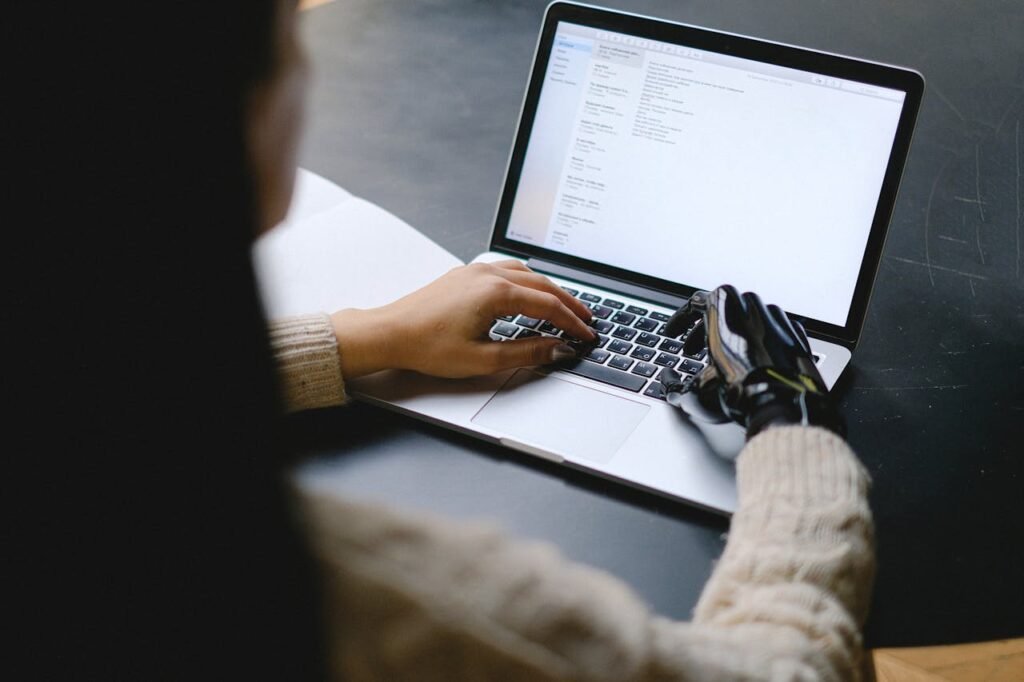
Advanced prosthetics can be expensive—especially bionic hands or custom microprocessor knees. Many families worry about whether they can afford it. But there’s good news: several clinics in Bengaluru are now offering EMI plans or helping users connect with support programs.
At KSHEMAA and KARE, you can ask about easy monthly payment options. These plans spread the cost over several months, sometimes even up to a year. There may be zero-interest options depending on your credit history or bank tie-ups.
It’s best to ask directly during your consultation. Many clinics don’t advertise EMI plans online, but are open to discussing them one-on-one.
NGO and Insurance Help
Some Bengaluru-based NGOs offer partial or full funding for prosthetics, especially for children, accident victims, or economically weaker sections.
Organizations like Bhagwan Mahaveer Viklang Sahayata Samiti (BMVSS) or Rotary-based groups occasionally run camps or sponsor fittings.
Private health insurance sometimes covers prosthetics—especially if it was medically necessary after surgery. It may not cover bionic options, but it’s worth checking your policy. Some hospitals like SPARSH also assist with insurance paperwork.
If you need help, ask the clinic if they can guide you. Many will write letters, share cost breakdowns, or even help you apply for support.
The Emotional Side of Recovery
Coping After Amputation
Losing a limb isn’t just about losing function—it affects how you feel inside. You may grieve. You may feel angry. You may wonder why it happened to you. These feelings are valid.
Many people in Bengaluru say the hardest part isn’t learning to walk again—it’s learning to believe in themselves again.
If you feel stuck, talk to someone. Some prosthetic clinics offer emotional counselling or group support. Speaking to another person who has gone through it can be healing.
Even short conversations can lift your spirits. You realize you’re not alone. Others have been there—and they’ve made it.
Family and Community Support
Your family plays a huge role in your healing. But sometimes, they don’t know how to help. They might hover too much or say the wrong thing, even if their heart is in the right place.
That’s why some clinics, like KARE and Ottobock, offer family education. They teach your loved ones how to support without overwhelming you. They also share do’s and don’ts to help you rebuild your independence.
The right support system can turn pain into power. It can help you not just survive—but truly live again.
How RoboBionics Helps Bengaluru Users
Made in India, Built for You
At RoboBionics, we believe advanced prosthetics shouldn’t just be for the rich. That’s why we created Grippy™, a lightweight, affordable bionic hand that’s changing lives across India—including right here in Bengaluru.
Most imported bionic hands cost over ₹10 lakh. But Grippy™ is proudly made in India, and priced between ₹2.15 to ₹3 lakh. It gives you world-class technology—without breaking the bank.
The hand uses myoelectric sensors—that means it responds to your own muscle signals. You move your muscles, and the hand opens, closes, and grips smoothly. And with our Sense of Touch™ technology, you actually feel feedback—so you know when you’re holding something.
Whether you’re holding your child’s hand, cooking dinner, or writing a letter, Grippy™ helps you do it with confidence.
Support That Goes Beyond the Product
We don’t just sell you a hand—we walk with you through the journey.
Our team works closely with prosthetic centers in Bengaluru to make fittings smooth, follow-ups easy, and training stress-free. From your first demo to final fitting, we’re there with you.
Want to see it for yourself? You can book a free demo at www.robobionics.in/bookdemo.
There’s no pressure to buy. Just try it. Ask questions. See what it feels like to move your fingers again.
A Future Full of Possibility
We know that behind every prosthetic is a human being with dreams, fears, and a story. Our job is to help you write the next chapter—one filled with strength, hope, and pride.
At RoboBionics, we’re not just building devices. We’re helping people reclaim their lives—with dignity, grace, and a whole lot of courage.
How to Choose the Right Prosthetic Clinic in Bengaluru
Start with Your Priorities
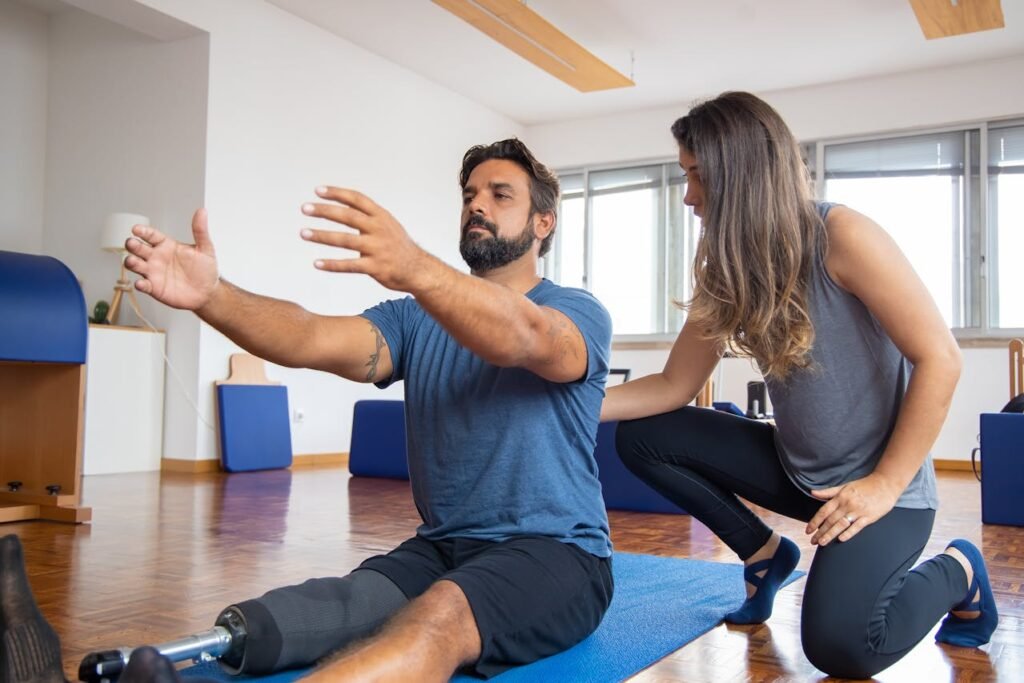
There is no perfect clinic—only the one that’s perfect for you.
Begin by thinking about what matters most. Is it the location? The budget? The technology? Or maybe you’re looking for a team that explains everything slowly and patiently.
If you’re seeking advanced tech like a bionic hand, go for clinics like KSHEMAA, KARE, or Ottobock. If you prefer hospital-based care with doctors nearby, SPARSH or St. John’s might feel safer. If you’re on a tight budget or want basic mobility, even small centers can do a great job.
Knowing your own priorities makes the search easier.
Visit More Than One Clinic
It’s okay to meet more than one prosthetist. Each clinic has its own way of working, its own pace, and its own vibe.
Some may focus more on high-tech fittings. Others may take a more emotional, step-by-step approach. Visiting a few helps you feel what’s right. Listen to how the staff talks to you. Notice if they rush or if they care.
You’ll know when you’ve found a team that sees you as a person, not just a case.
Ask the Right Questions
During your visits, ask questions like:
How long have you been fitting prosthetics?
What types of limbs do you offer?
Do you provide training and follow-up care?
Do you offer EMIs or insurance help?
Can I try a demo or get a second opinion?
A good clinic won’t be bothered by these questions. In fact, they’ll be glad you asked. Because when you’re informed, your chances of success go way up.
Closing Thoughts: You Deserve a Full Life
If you’ve read this far, it means you care deeply—either about yourself or someone you love. That alone shows strength.
Yes, losing a limb is hard. But it’s not the end. With the right support, it can be a new beginning.
You don’t have to feel “less than” or live with limits. You don’t have to accept a life of hiding or hurting. Bengaluru has clinics, teams, and people who want to see you walk, move, work, and smile again.
You just need to take the first step.
Ready to Try a Bionic Hand?
If you or someone you know is looking for a reliable, affordable bionic hand in Bengaluru, Grippy™ from RoboBionics could be the answer.
Our device is:
• Lightweight
• Affordable
• Easy to learn
• Controlled by your own muscles
• Built right here in India
With 60 out of 64 parts made locally, it’s designed for Indian users—strong, smart, and simple to use.
Want to try it?
Book a free demo today at www.robobionics.in/bookdemo.
There’s no pressure. No long process. Just a friendly team ready to help.
It’s never too late to start over. With the right prosthetic, you can reclaim your freedom, your confidence, and your joy.
Let’s take the next step—together.



